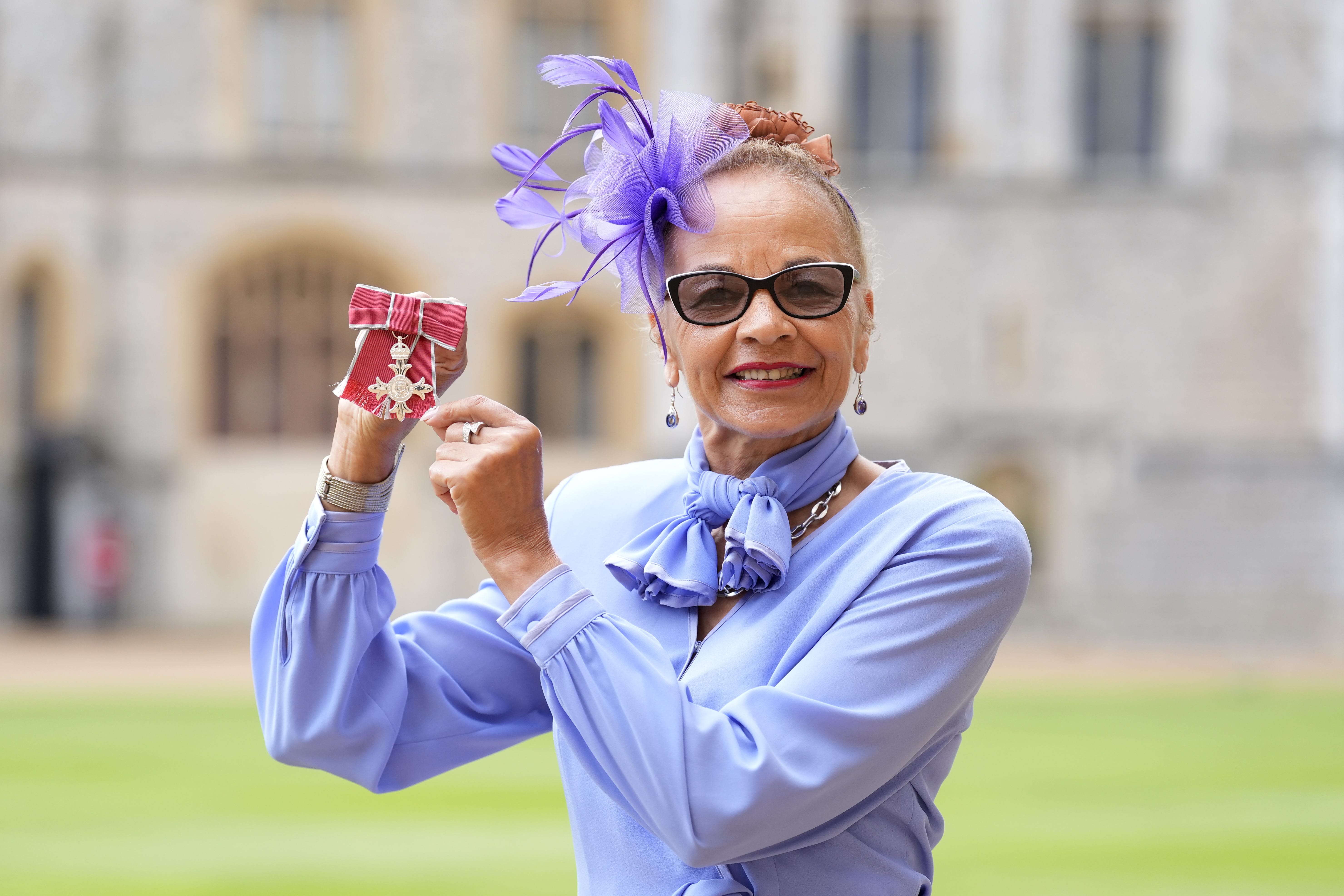UK’s first black female Olympian ‘feels like a trailblazer’ as she is made MBE
Anita Neil competed as an 18-year-old sprinter at the Mexico City Olympic Games in 1968.

The first black woman to compete for Great Britain at the Olympic Games has embraced her role as a sporting trailblazer as she was made an MBE.
Anita Neil competed in the women’s 100 metres and 4 x 100 metres relay team in Mexico City aged just 18 in 1968 and at the following Games in Munich four years later.
The 74-year-old, of Wellingborough, Northamptonshire, was recognised with the royal honour for her services to athletics at Windsor Castle, Berkshire, on Wednesday.
Ms Neil told the PA news agency having the ceremony hosted by the Princess Royal, herself a former Olympian, was “fantastic”.
“She said ‘It’s a long time coming’, and I said ‘Yes, I certainly know that.’
“I said it’s an honour and a pleasure that I’m receiving the MBE from a fellow Olympian.”
Great Britain’s first black male Olympian is thought to be Harry Edward, who competed at the 1920 Games in Antwerp.
Asked if she felt like a trailblazer in female British sport for her Olympic feat, Ms Neil said: “Yes I do, because I go to schools and homes and all sorts of places, giving talks and speeches.
I won medals at the European Games and I stood on the podium and watched the Union Jack flutter in the breeze. That was for me and for my country, and I felt very, very proud of that
“I opened a school the other month in the local area. They appreciate me now, they know I’m here.”
Ms Neil competed in the long jump during her school days before rising to prominence on the track.
She became an international athlete at 16 when reigning Olympic gold medallist Mary Rand was injured, taking her place at a competition in Lille, France.
Ms Neil said: “That was quite an experience because I was the youngest on the team, and quite nerve-wracking. I’d never flown before.”
During her career, Ms Neil said she had no sponsorship and little equipment or finances, and would often train on a rough school playing field on her own, compared to current British athletes who have “got it all now”.
She said she was “glued” to the women’s sprinting events held at the Paris Olympics Games this summer and had kept “a whole lot” of memorabilia from the Games she competed in, including opening ceremony dresses, running spikes and event tickets.
“(It is) unbelievable to think that I did it,” she said.
Ms Neil said representing Great Britain ranked as her greatest achievement.
She added: “I won medals at the European Games and I stood on the podium and watched the Union Jack flutter in the breeze.
“That was for me and for my country, and I felt very, very proud of that.”
Bookmark popover
Removed from bookmarks